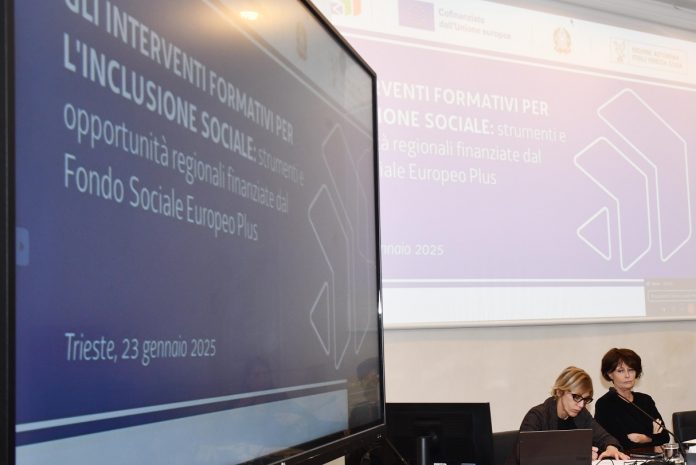by InTrieste
The Regional Government of Friuli Venezia Giulia has announced an ambitious initiative aimed at improving the employment prospects of the region’s most disadvantaged residents. Spearheaded by Regional Councilor for Labor Alessia Rosolen, the Integra program will expand job training and social inclusion services for individuals with disabilities, economic challenges, and other vulnerabilities, including inmates and migrants.
Speaking at an event in Trieste on Tuesday, Rosolen outlined the region’s commitment to a “qualitative leap” in services. “We are transitioning from a model of assistance to one of active workforce integration,” she said, emphasizing collaboration between public institutions, private companies, and third-sector organizations.
A New Vision for Inclusion
The Integra program, funded by €18 million from the European Social Fund (ESF) Plus, will roll out over the next three years. It will focus on co-designed training courses tailored to the needs of both participants and local businesses, with additional services such as guidance, mentorship, and support for social reintegration. Activities will be implemented across four key territories in the region, targeting specific community needs.
Proven Results, Ambitious Goals
The announcement follows a decade of ESF-supported initiatives that spent €26 million on similar programs between 2014 and 2020. Over that period, the region funded 1,752 training courses, reaching more than 13,000 individuals, with 30% of participants finding employment within 12 months. The current ESF budget for 2021–2027 allocates €103 million to social inclusion initiatives, representing 27% of total funds.
This investment reflects the urgency of addressing systemic challenges: 43% of participants in past programs faced economic disadvantages, 26% had disabilities, and 11% were migrants. With an average participant age of 36, the programs have also been instrumental in offering second chances to mid-career workers.
A Broader Commitment
Rosolen underscored the region’s dedication to addressing societal evolution through forward-thinking programs. “This is about responsibility and collaboration,” she said. “We are creating pathways that allow even the most vulnerable members of our community to thrive.”
As Friuli Venezia Giulia moves ahead, its leaders hope Integra will serve as a model for other regions in Italy and across Europe, proving that bold investments in social inclusion can yield transformative results.





























